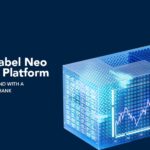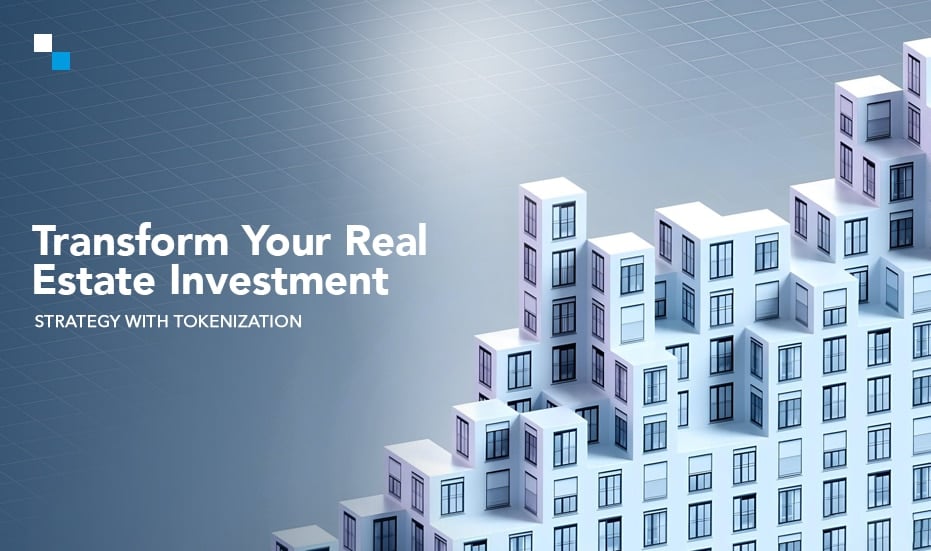The real estate industry is undergoing a remarkable transformation, driven largely by technological advancements. Among the most groundbreaking innovations is White Label Real Estate Tokenization, a process that converts physical assets into digital tokens on a blockchain. This evolution enhances accessibility, liquidity, and investment opportunities. As more companies recognize the benefits of this shift, White Label Tokenization Platform solutions have emerged as a powerful tool for businesses looking to capitalize on this trend. In this blog, we’ll explore White Label Real Estate Tokenization in depth and how it can serve as your gateway to success.
What is White Label Real Estate Tokenization?
White Label Real Estate Tokenization refers to pre-built, customizable platforms that allow businesses to offer tokenization services under their own brand. Instead of developing a solution from the ground up, companies can leverage existing technology and frameworks to launch their own services quickly and efficiently. This approach is particularly advantageous for real estate firms, investment companies, and financial institutions eager to meet the growing demand for tokenized assets without incurring the high costs associated with custom development.
The Basics of Real Estate Tokenization
Before diving deeper into White Label Real Estate Tokenization Platform Development, it’s essential to understand what real estate tokenization entails. Tokenization involves creating a digital representation of a physical asset—like real estate—on a blockchain. Each token represents a fractional ownership stake in the asset, allowing multiple investors to own a portion of a property.
This process brings several advantages:
- Liquidity: Tokenization enables fractional ownership, allowing investors to buy and sell smaller portions of a property, enhancing liquidity in a traditionally illiquid market.
- Accessibility: Investors can enter the real estate market with lower capital requirements, democratizing access to property investments that were once available only to wealthy individuals.
- Transparency: Blockchain technology provides a secure, immutable record of ownership and transactions, fostering trust among investors.
- Reduced Costs: Smart contracts can automate various processes, reducing the need for intermediaries and lowering transaction costs.
Benefits of White Label Real Estate Tokenization
Rapid Market Entry
One of the most significant advantages of a White Label Real Estate Tokenization Platform is the speed at which businesses can enter the tokenization market. Developing a custom platform can take months or even years. However, by utilizing a pre-built solution, companies can bypass this lengthy development process and start offering their services almost immediately. This rapid market entry is crucial in a fast-moving environment where first movers often gain a competitive edge.
Cost-Effectiveness
Creating a custom tokenization platform can be prohibitively expensive. From hiring developers to maintaining the infrastructure, costs can quickly add up. White Label Tokenization Platform solutions significantly reduce these costs by providing businesses with the necessary tools and technology. This allows companies to allocate resources more efficiently, focusing on marketing and customer acquisition rather than development.
Brand Customization
With a White Label Real Estate Tokenization Platform, businesses can customize the platform according to their branding and user experience preferences. This ensures that the service aligns with the company’s values and meets the expectations of its target audience. Customization can include branding elements, user interface design, and even specific features that cater to unique market needs.
Compliance and Security
Navigating the regulatory landscape of White Label Real Estate Tokenization can be complex. Many White Label Real Estate Tokenization Platform Development solutions come equipped with built-in compliance features, ensuring that businesses adhere to relevant laws and regulations. These solutions often include KYC (Know Your Customer) and AML (Anti-Money Laundering) checks to help businesses mitigate legal risks. Additionally, established providers prioritize security, implementing robust measures to protect user data and assets from breaches or fraud.
Access to Expertise
Partnering with a White Label Real Estate Tokenization Platform Development Company gives businesses access to a team of experts with specialized knowledge in blockchain technology, tokenomics, and real estate. This expertise can be invaluable in creating a successful tokenization strategy. Providers can offer insights into best practices, market trends, and innovative approaches, helping businesses stay ahead in a competitive landscape.

How White Label Real Estate Tokenization Works?
- Platform Setup: After selecting a White Label Real Estate Tokenization Platform Development Company, businesses set up their tokenization platform, customizing it to reflect their brand. This process typically involves configuring various aspects, such as the user interface, token parameters, and investment structures.
- Token Creation: The platform facilitates the creation of digital tokens that represent ownership shares in real estate assets. These tokens are secured on the blockchain, ensuring transparency and traceability. The process usually involves defining the total number of tokens, their value, and the rights associated with each token.
- Compliance Checks: Built-in compliance features help ensure that all transactions adhere to legal requirements, including KYC and AML regulations. This step is crucial in building trust with investors and regulatory bodies.
- Investor Access: Once the platform is live, investors can access tokenized assets through an intuitive user interface. They can launch their own real estate tokenization platform, enabling them to purchase fractional shares of real estate properties. This increases liquidity and broadens access to investment opportunities, allowing smaller investors to diversify their portfolios without needing substantial capital.
- Ongoing Support: White Label Tokenization Platform providers often offer continued support, including maintenance and updates, allowing businesses to focus on growth and customer engagement.
The Future of Real Estate Tokenization
The future of White Label Real Estate Tokenization looks promising, with several trends on the horizon:
Integration with Decentralized Finance (DeFi)
As the DeFi space continues to grow, we can expect more integration between tokenized real estate and DeFi platforms. This could enable innovative financial products, such as tokenized real estate loans or yield farming opportunities linked to real estate investments. By tapping into DeFi, businesses can offer their clients enhanced liquidity and diverse investment options.
Emergence of New Investment Models
Tokenization could lead to the creation of new investment models, such as Real Estate Investment Trusts (REITs) on the blockchain. These blockchain-based REITs would allow investors to trade shares in a diversified real estate portfolio, further enhancing liquidity and attracting a broader range of investors.
Increased Investor Awareness
As awareness of the benefits of tokenization grows, traditional investors may increasingly turn to tokenized assets as part of their portfolios. This shift could open up a wealth of opportunities for businesses that have positioned themselves early in the market. Companies that focus on education and transparency will likely attract more investors who may be hesitant about new investment models.
Global Expansion
Tokenization has the potential to transcend geographical boundaries, allowing investors from around the world to participate in local real estate markets. This global reach can increase demand for tokenized assets and create a more dynamic investment landscape.
Understanding White Label Real Estate Tokenization Price
When considering White Label Real Estate Tokenization, it’s important to understand the associated costs. The white label real estate tokenization price will vary depending on several factors, including the features you require, the level of customization, and the provider you choose. Businesses should conduct thorough research and request quotes from multiple providers to ensure they get the best value for their investment.
Conclusion
White Label Real Estate Tokenization presents an exciting opportunity for businesses to enter the innovative world of tokenized assets without the burdens of extensive development. By leveraging existing technology, companies can offer their clients fractional ownership of real estate, enhancing liquidity and democratizing investment opportunities.
As the market continues to evolve, embracing a White Label Real Estate Tokenization Platform could be your key to unlocking success in the rapidly changing landscape of real estate investment. If you’re ready to launch your own white label real estate tokenization platform, now is the time to act. Partner with a reliable provider like Antier and position your business for growth in the digital economy!







